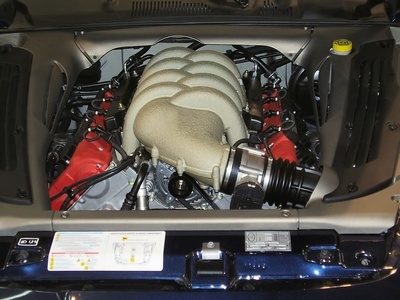
The hydraulic lifters in your car or truck's engine are an essential part of your vehicle. The lifters move up and down inside the block, helping generate the compression and power your car needs to run. If a lifter fails, your car or truck will not run properly and may exhibit any of several different side effects. Lifter problems cannot be repaired without rebuilding or replacing the engine on your vehicle, and such problems are typically caused by running the vehicle low on oil or overheating the engine.
Check your engine oil. Add oil if necessary, making note of how much oil you have had to add. It is important to know how much oil is in your vehicle when you are trying to determine the condition of the engine and the hydraulic lifters. You may notice that the engine has low oil pressure on the oil gauge when it is running.
Look at the vehicle's mileage and maintenance history. High mileage vehicles are far more likely to experience problems with the engines and lifters, as are those that have been routinely run low on oil or experienced an extreme loss of engine lubrication due to a non-functioning oil pump or other problem.
Start the vehicle. If the vehicle is hard to start, it can be a sign that it is not firing properly on all cylinders and that there may be a problem with a seized up or broken hydraulic lifter in the engine.
Notice whether the vehicle's check engine light is on. If the check engine light has come on, attach the vehicle's computer to an error code reader and diagnose the error codes that are generated. In some vehicles, a failing or broken lifter will generate a corresponding error code in the vehicle's computer system.
Listen to the engine run. Loud banging, knocking or tapping noises may be a sign of a bad lifter. Noises are typically caused by worn out lifters coming into contact with other engine components or a lack of lubrication.
Take the vehicle to a mechanic and have it formally diagnosed. In some cases, the mechanic may have to take the top end of the engine apart to identify the exact lifter that is failing and the cause of the failure.